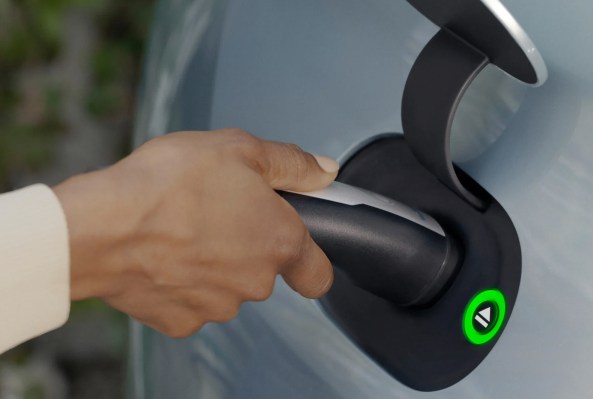
Rivian customers can now request an adapter to tap into Tesla’s vast North American network of Superchargers, making it the second automaker to do so behind Ford.
The company announced Monday that it will start shipping adapters to Rivian owners — one per VIN — “this spring” for free, though it didn’t say if it will eventually charge a fee. Ford was the first to start offering the so-called North American Charging Standard (NACS) adapters last month for free. Ford will start charging $230 for the adapters after June 30.
Rivian has not said whether it will offer existing customers the adapter free of charge or what it will cost to order.
Virtually every major automaker has announced NACS compatibility for some or all of their forthcoming EVs since Tesla first announced it was opening up access to its charging technology in late 2022. The adapters serve as a stopgap for customers who buy (or have already bought) EVs that rely on the previously dominant charging interface, the Combined Charging System (CCS). Most automakers have announced that future EVs will incorporate Tesla’s charging tech into future vehicles.
For instance, Rivian’s existing R1S SUV and R1T pickup truck will be produced with built-in Tesla charing tech next year. Rivian’s next-generation vehicles, which it just revealed earlier this month, will also include the Tesla charging port. The R2 SUV will start shipping with a NACS charging port in 2026, while the smaller R3 hatchback will come at a later date. (Though there has already been some consternation online about where Rivian chose to place that port.)
Rivian says current owners will get a notification on their vehicle’s screen with a QR code to scan where they can reserve the adapter.
Making Tesla’s Supercharger network accessible to owners means they now have 15,000 new fast chargers where they can plug in. Rivian has also been building out its own network of fast-charging stations, which it calls the Rivian Adventure Network. The company said Monday that it currently has 424 of those chargers in operation at 70 stations across 22 states.

